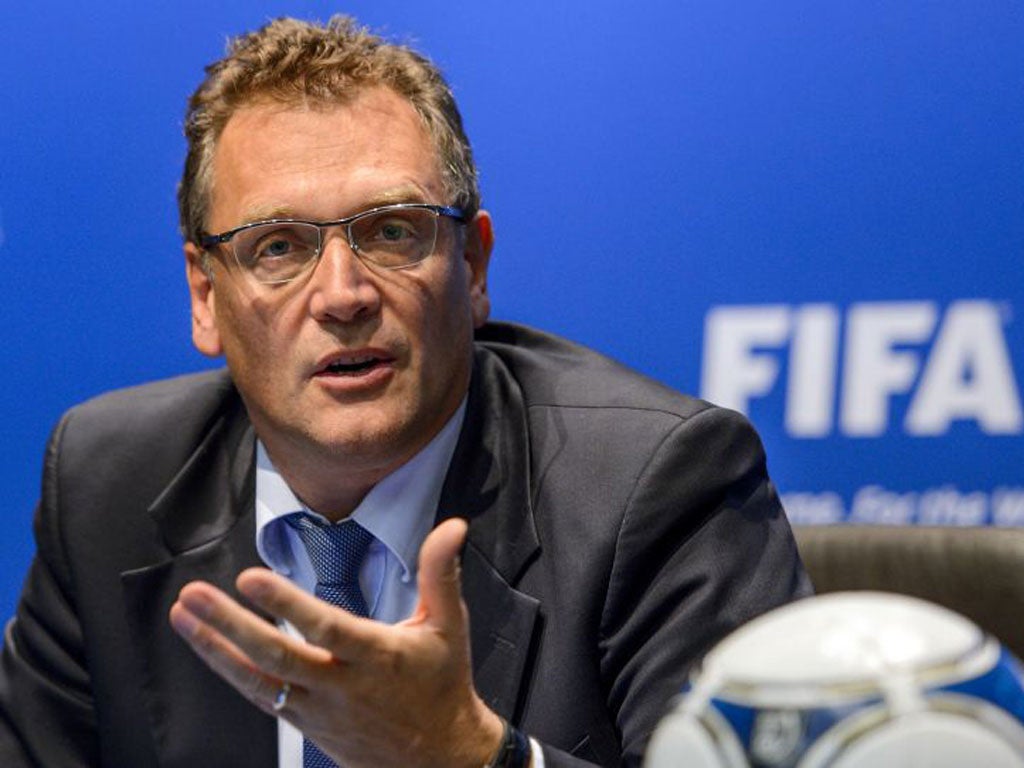The View from Brazil: Is the country ready off the pitch?

Brazil's struggle to be ready for 2014 is an admission of monstrous incompetence. The country knew as far back as March 2003 that it would be staging the World Cup. Following the rotation principle, Sepp Blatter declared that 2014 would be South America's turn, and the continent's federation quickly announced that Brazil was its only candidate.
So in October 2007, when Brazil was officially named as 2014 host, it might have been expected that the plans would be in place – or at the very least that the host cities had been chosen. None of this had happened. And it gets worse. Brazil would not choose its host cities. The decision was passed on to Fifa, which finally made public its decision at the end of May 2009.
Ever since, Brazil has been playing catch-up. Jose Roberto Bernasconi, the president of an association of architects and engineers, has often voiced his exasperation with the slow pace of progress. In an article published last month he feared that poor planning could result in the opportunities of staging the World Cup being wasted. Early last year he put his finger on the problem.
"There are countries which suffer natural disasters and need to reconstruct everything on an emergency basis," he said. "We create our own emergencies without any necessity."
Delays have a cost. They mean that the stadiums cost more – especially pertinent since in 2007 the then president of Brazil's FA, Ricardo Teixeira, told Brazilian society that all the money used to build them would be private. In fact, the source of the money is overwhelmingly public – and at least two (Cuiaba and Manaus) and possibly four (Brasilia and Natal as well) of the stadiums have dubious long-term viability.
Delays also mean the cutting and scaling back of projects seen as non-essential to the World Cup. South Africa showed that a World Cup need not necessarily count on good urban transport links. The event is so special that people are happy to turn up hours in advance to soak up the atmosphere. And urban mobility is where Brazilian society had most to gain from the tournament. But it is here that cuts are being made. Two weeks ago came the announcement that Brasilia's projected monorail system would not be ready in time, and was being withdrawn from the 2014 package.
Bernasconi points out that so far less than five per cent of funds for the urban mobility projects have been allocated – and, with time running out, they are particularly vulnerable to corner-cutting.
As Jérôme Valcke, the general secretary of Fifa, said in June: "We can't think of creating a new country in five or six years. Maybe some of the projects are not so important to the World Cup. What we need, of course, are the stadiums. And we also need the airports to function well so that people can move around from one city to another."
The stadiums will surely be ready for 2014. But airports are the potential Achilles' heel of the entire tournament. With teams and fans travelling round a country of continental dimensions, there can be no corner-cutting on airport capacity.
Subscribe to Independent Premium to bookmark this article
Want to bookmark your favourite articles and stories to read or reference later? Start your Independent Premium subscription today.

Join our commenting forum
Join thought-provoking conversations, follow other Independent readers and see their replies